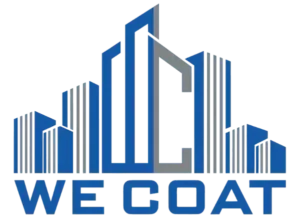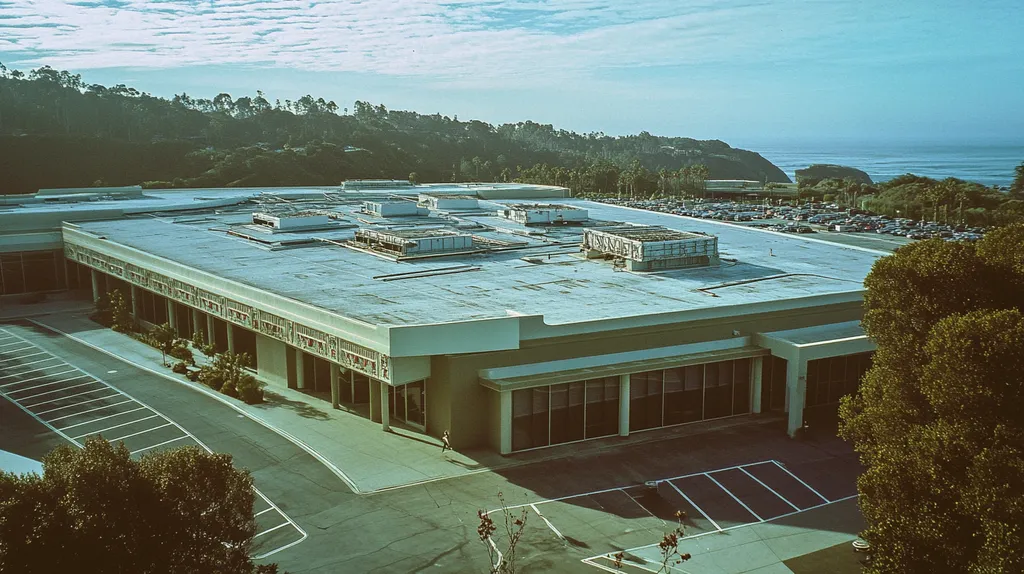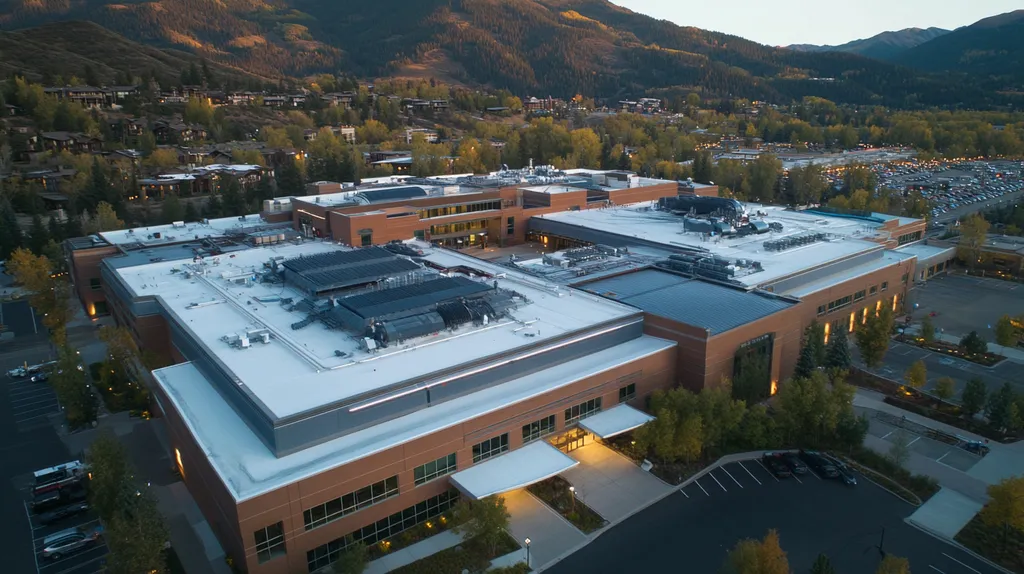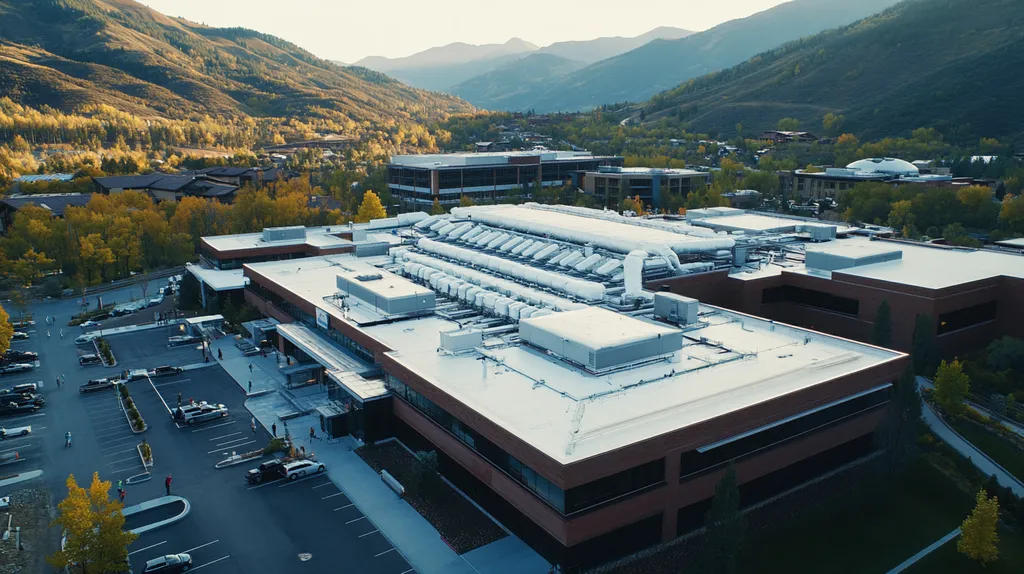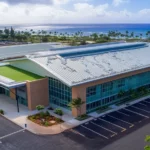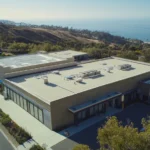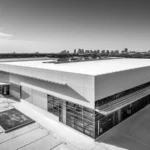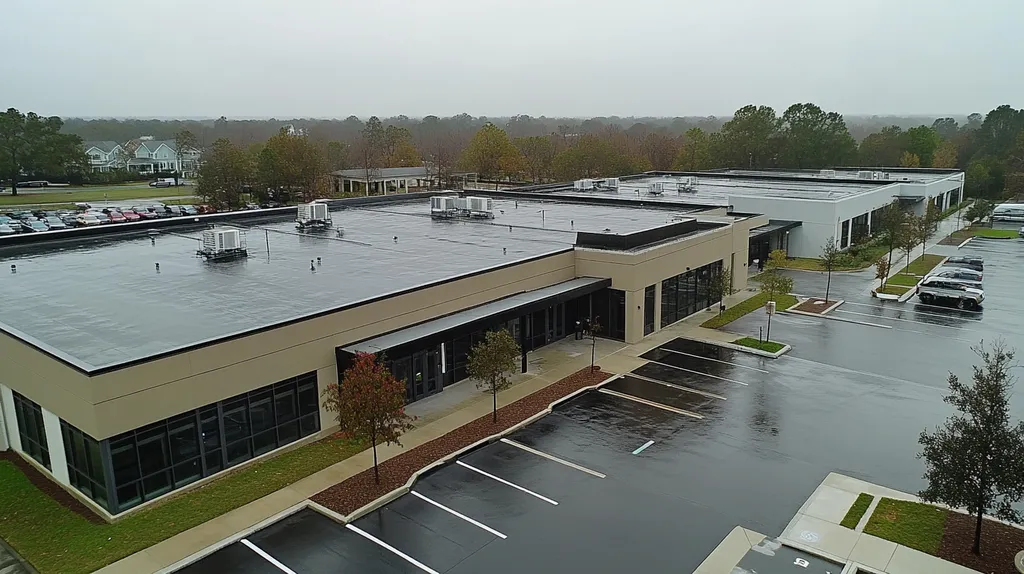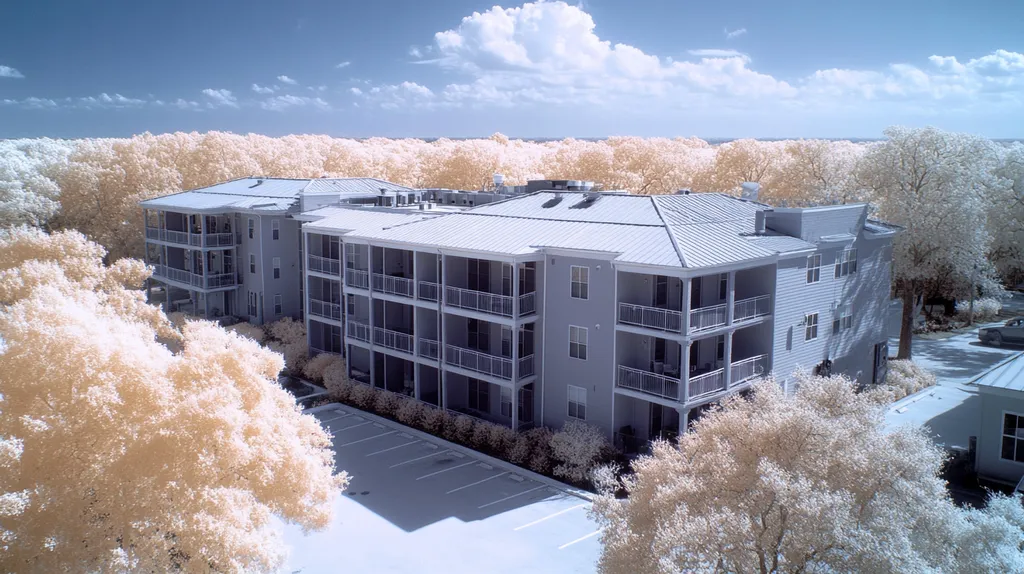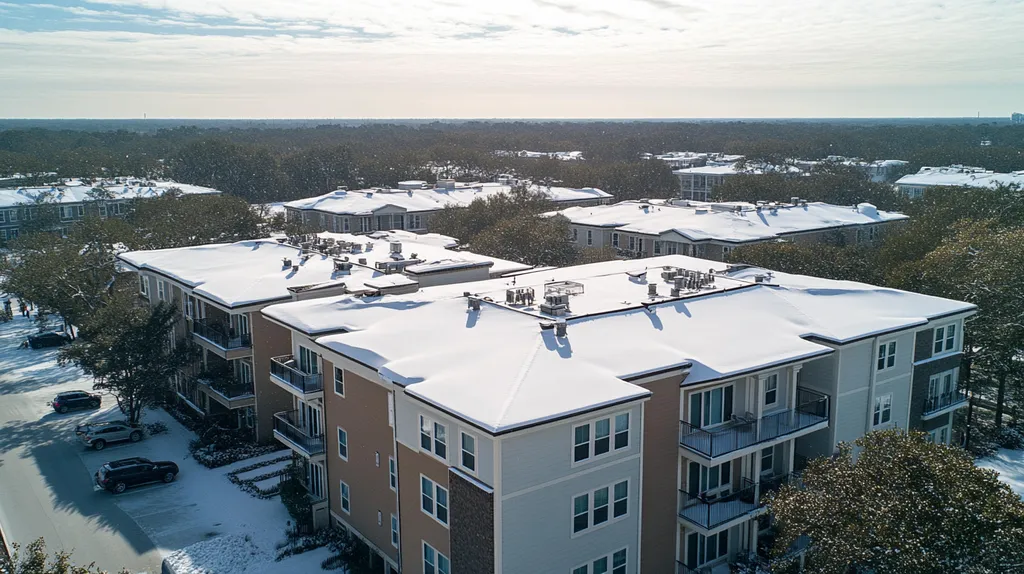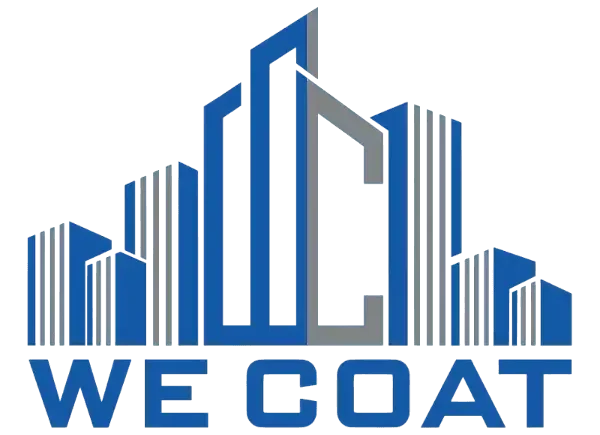Welcome to today’s Battle Royale featuring two roofing heavyweights: “Metal Roof Coatings” in the east corner versus “PVC Membrane” in the west!
Tonight’s showdown pits these contenders against each other across six punishing rounds designed to test every aspect of their performance for Industrial Roof Visual Appeal.
At stake? Millions in potential costs, decades of building protection, and the critical performance demands of modern commercial and industrial facilities.
Our professional judging panel will evaluate each round on technical merit, real-world performance, and value delivery. After all six rounds, we’ll declare our ultimate champion.
Ladies and gentlemen, facility managers and building owners… it’s time to rumble!
ROUND 1: INITIAL COSTS & INSTALLATION
When facing industrial roofing decisions, the financial implications of material selection and installation can impact budgets for years to come. With industrial roofs commonly spanning 20,000 to 100,000 square feet, even small cost differences per square foot can translate into substantial budget variations. Understanding the full scope of initial investments helps facility managers make informed choices that align with both immediate needs and long-term objectives.
Material Expenses
Material costs represent a significant portion of any roofing project’s budget. Metal roof coatings typically range from $2 to $4 per square foot, offering an economical solution for large industrial spaces.
PVC membranes present a higher initial investment, usually costing between $4 to $7 per square foot. However, PVC roofing offers superior waterproofing and resistance to oils and fats, making it particularly valuable for food production facilities and restaurants.
While PVC’s durability may offset its higher price over time, the substantial upfront cost difference cannot be ignored. For immediate budget considerations, metal roof coatings hold the clear “ADVANTAGE”.
Installation Complexity
Installation complexity directly affects labor costs and project risk factors. Metal roof coatings generally require minimal preparation and can often be applied directly over existing surfaces, reducing both labor hours and disposal costs.
PVC membrane installation is relatively straightforward but requires complete removal of existing roofing materials. This process demands more labor hours and creates additional waste management considerations. (source: Heidler Roofing Blog)
The simpler application process and reduced preparation requirements give metal roof coatings the “ADVANTAGE” in installation complexity.
Project Timeline
Project duration significantly impacts facility operations and overall costs. Metal roof coating applications typically require 3-5 days for average-sized industrial facilities, minimizing operational disruptions.
PVC membrane installations generally take 7-10 days for similar-sized projects due to the removal of existing materials and precise installation requirements. This extended timeline can create longer periods of potential weather exposure and operational interruptions.
With shorter installation periods and reduced facility disruption, metal roof coatings earn the “ADVANTAGE” for project timeline considerations.
ROUND 1 WINNER: Metal Roof Coatings
ROUND 2: DURABILITY & LIFESPAN
In industrial roofing, durability and lifespan decisions can mean the difference between a 20-year solution and a costly replacement in just 5 years. With industrial facilities facing intense UV exposure, chemical emissions, and extreme temperature fluctuations, choosing the right roofing system becomes critical for long-term facility protection and appearance maintenance.
Weather Resistance & Environmental Protection
Metal roof coatings create a seamless protective barrier that excels in deflecting UV rays and preventing water infiltration. These coatings can be customized with additional weather-resistant properties to match specific climate challenges.
When properly maintained, metal roof coatings typically maintain their protective capabilities for 15-20 years. However, their effectiveness can diminish more quickly in areas with extreme temperature variations or high industrial emissions.
PVC membranes demonstrate superior resistance to chemicals, acids, and oils, making them ideal for facilities with harsh environmental exposures. Their heat-welded seams create a monolithic surface that prevents water intrusion even under extreme conditions.
Given their superior resistance to environmental factors, PVC membranes earn the ADVANTAGE in this category.
Physical Impact & Stress Tolerance
Metal roof coatings provide excellent protection against normal wear and tear, particularly when reinforced with additional strength-enhancing additives. These coatings flex with the substrate, reducing the risk of cracking under thermal stress.
Metal roofs offer a winning combination of aesthetics and durability, with coatings enhancing both protection and visual appeal. Their ability to withstand physical impacts while maintaining appearance makes them particularly valuable for industrial applications. (source: MBCI)
PVC membranes demonstrate remarkable puncture resistance and can withstand significant foot traffic without damage. Their inherent flexibility allows them to accommodate building movement and structural settling without compromising integrity.
With both options showing strong performance, this category results in a TIE.
Maintenance Requirements & Longevity
Metal roof coatings require periodic reapplication every 10-15 years to maintain optimal performance. Regular inspections can identify areas needing touch-ups before serious degradation occurs.
While the recoating process is straightforward, the cumulative maintenance costs over time can be significant. The frequency of maintenance increases in harsh industrial environments.
PVC membranes typically require minimal maintenance beyond routine inspections and basic cleaning. Their single-ply construction eliminates many common failure points, and their service life often extends beyond 25 years.
The lower maintenance requirements and extended lifespan give PVC membranes the ADVANTAGE in this category.
ROUND 2 WINNER: PVC Membrane
ROUND 3: PERFORMANCE FACTORS
Industrial roofing performance directly impacts both functionality and aesthetics, with poor choices leading to premature aging and unsightly deterioration. With industrial facilities facing extreme temperature swings of up to 100°F and UV exposure that can degrade materials within years, selecting the right roofing system becomes crucial for maintaining both protection and appearance.
Durability and Longevity
Metal roof coatings create a seamless protective barrier that effectively shields underlying materials from UV damage and moisture infiltration. Advanced coating technologies now offer enhanced protection against the elements while preserving structural integrity. (source: 4Ever Metal Roofing)
These coatings typically maintain their protective capabilities for 15-20 years, though performance can vary based on environmental conditions and exposure levels. Regular inspections help identify potential issues before they compromise the coating’s effectiveness.
PVC membranes demonstrate exceptional durability with a lifespan often exceeding 25 years. Their molecular structure resists degradation from UV exposure and chemical contact, maintaining both protection and appearance longer than most alternatives.
Given the superior longevity and consistent performance, PVC membranes earn the ADVANTAGE in this category.
Weather Resistance
Weather resistance directly affects how well a roof maintains its appearance over time. Metal roof coatings excel at reflecting solar radiation and preventing water infiltration, helping preserve the roof’s aesthetic appeal.
However, these coatings may require periodic reapplication in areas with extreme weather conditions. The coating’s effectiveness can diminish more quickly when exposed to frequent temperature fluctuations or harsh environmental factors.
PVC membranes offer superior resistance to weathering through their heat-welded seams and flexible composition. This technology creates a monolithic surface that maintains its appearance and functionality even under extreme conditions.
The superior weather resistance and longer-lasting appearance give PVC membranes the ADVANTAGE in this category.
Maintenance Requirements
Regular maintenance ensures roofing systems retain both their protective qualities and visual appeal. Metal roof coatings require periodic inspections and occasional touch-ups to maintain their protective barrier.
While the recoating process is relatively straightforward, the cumulative maintenance costs over time can impact long-term budgets. Environmental factors may necessitate more frequent maintenance intervals.
PVC membranes typically need only basic cleaning and occasional seam inspection. Their single-ply construction eliminates many common maintenance issues, reducing both cost and effort while maintaining appearance.
The minimal maintenance requirements and consistent performance give PVC membranes the ADVANTAGE in this category.
ROUND 3 WINNER: PVC Membrane
ROUND 4: MAINTENANCE REQUIREMENTS
Industrial roofing maintenance directly impacts both facility protection and aesthetic longevity. With maintenance costs typically ranging from $0.10 to $0.30 per square foot annually, choosing the right system can mean the difference between simple upkeep and costly repairs. Understanding these requirements helps facility managers protect their investment while maintaining visual appeal.
Routine Inspection Requirements
Metal roof coatings demand quarterly visual inspections to identify potential issues before they compromise appearance or protection. These inspections focus on coating integrity, flash points, and drainage systems.
While frequent, these inspections are relatively simple and can often be conducted by facility maintenance staff. Early detection of issues prevents the spread of unsightly damage and maintains the roof’s clean appearance.
PVC membranes require bi-annual professional inspections focusing on seam integrity and membrane punctures. These inspections are more comprehensive but less frequent, reducing disruption to facility operations.
Given the simpler inspection process and lower professional service requirements, metal roof coatings earn the ADVANTAGE in this category.
Cleaning and Preventive Care
Metal roof coatings need regular cleaning to maintain their reflective properties and aesthetic appeal. Monthly debris removal and bi-annual pressure washing keep the surface pristine and functioning optimally.
PVC membranes require less frequent cleaning, typically responding well to quarterly debris removal and annual washing. Their smooth surface naturally resists dirt accumulation and maintains appearance with minimal intervention.
With reduced cleaning requirements and better self-maintaining properties, PVC membranes gain the ADVANTAGE in this category.
Long-term Maintenance Costs
Metal roof coatings benefit from a relatively simple maintenance cycle, though they require recoating every 7-10 years to maintain optimal performance and appearance. The recoating process offers opportunities to address any aesthetic concerns and update the roof’s appearance.
Metal roofing systems combine durability with aesthetic versatility, making them particularly valuable for industrial applications where appearance matters. Their maintenance requirements, while regular, contribute to extended service life and sustained visual appeal. (source: MBCI)
PVC membranes rarely need major maintenance during their lifespan, but when repairs are necessary, they tend to be more complex and costly. Their single-ply nature means repairs often affect larger areas, potentially impacting the roof’s uniform appearance.
The predictable maintenance schedule and simpler repair process give metal roof coatings the ADVANTAGE in this category.
ROUND 4 WINNER: Metal Roof Coatings
ROUND 5: SUSTAINABILITY CREDENTIALS
With commercial buildings accounting for over 35% of total U.S. energy consumption, roofing choices significantly impact both environmental footprint and operating costs. Modern industrial facilities face increasing pressure to meet sustainability targets while maintaining aesthetic appeal and functionality. Understanding the environmental implications of roofing decisions has become crucial for facility managers seeking to balance performance with ecological responsibility.
Environmental Impact
Metal roof coatings offer significant environmental advantages through their composition and application process. These coatings create minimal waste during installation and can be applied over existing surfaces, reducing landfill impact.
Advanced coating technologies have revolutionized metal roofing’s environmental profile, combining enhanced protection with sustainable practices. Their recyclable nature and ability to extend roof life make them increasingly attractive for environmentally conscious facilities. (source: 4Ever Metal Roofing)
PVC membranes, while durable, present environmental challenges during production and disposal. The manufacturing process generates significant emissions, and end-of-life disposal often requires specialized handling.
Given their lower environmental impact and recyclability, metal roof coatings earn the ADVANTAGE in this category.
Energy Efficiency
Metal roof coatings excel in energy performance through their superior reflective properties. Modern coatings can reflect up to 85% of solar radiation, dramatically reducing cooling costs in industrial facilities.
These coatings maintain their reflective properties for years with proper maintenance, providing consistent energy savings throughout their lifespan. The reduced energy consumption translates directly to lower operational costs and decreased carbon emissions.
PVC membranes provide moderate energy efficiency through their white surface and insulation properties. However, they typically achieve lower reflectivity rates than specialized metal coatings and may lose efficiency over time.
The superior reflective properties and sustained energy savings give metal roof coatings the ADVANTAGE in this category.
Resource Conservation
Metal roof coatings demonstrate exceptional resource efficiency through their application process. These systems can often be recoated rather than replaced, conserving materials and reducing waste generation.
The ability to recoat existing surfaces eliminates the need for complete tear-offs, preventing thousands of pounds of roofing material from entering landfills. This approach aligns perfectly with sustainable building practices and waste reduction goals.
PVC membranes typically require complete removal and replacement at the end of their service life. This process generates significant waste and demands new raw materials for replacement installations.
The superior resource conservation and waste reduction potential give metal roof coatings the ADVANTAGE in this category.
ROUND 5 WINNER: Metal Roof Coatings
ROUND 6: SPECIALIZED APPLICATIONS
In industrial roofing, specialized applications can make or break facility operations and aesthetics. With chemical exposure levels reaching 1000 times higher than residential settings and temperature variations exceeding 150°F in some manufacturing environments, choosing the wrong roofing system can lead to premature failure and compromised appearance within months.
Environmental Resistance
Industrial facilities present unique environmental challenges that standard roofing solutions often can’t handle. From caustic chemical exposure to extreme temperature cycling, these environments demand specialized protection that maintains both function and appearance.
Metal roof coatings excel in environments with high UV exposure and temperature variations. Advanced coating technologies now offer enhanced chemical resistance while maintaining aesthetic appeal. (source: 4Ever Metal Roofing)
PVC membranes demonstrate superior resistance to acids, oils, and industrial chemicals. Their monolithic surface maintains appearance even in harsh chemical environments, though UV exposure can cause gradual discoloration.
Given their broader resistance profile and better appearance retention, metal roof coatings earn the ADVANTAGE in this category.
Application Versatility
Industrial roofing applications often require solutions that can adapt to unique facility requirements. From food processing plants to chemical storage facilities, each environment presents distinct challenges for maintaining both protection and aesthetics.
Metal roof coatings offer exceptional versatility through customizable formulations. These coatings can be modified with specific additives to enhance chemical resistance, UV protection, or thermal properties while maintaining visual appeal.
PVC membranes provide reliable performance but offer limited customization options. While they excel in specific environments, their application versatility cannot match the adaptability of specialized coatings.
The superior adaptability and customization potential give metal roof coatings the ADVANTAGE in this category.
Performance Longevity
Long-term performance in specialized applications directly impacts facility aesthetics and protection. Industrial environments accelerate material degradation, making performance longevity crucial for maintaining appearance and function.
Metal roof coatings can be refreshed or reapplied as needed, allowing for continuous protection and appearance maintenance. This flexibility extends service life while preserving aesthetic appeal in challenging environments.
PVC membranes offer solid initial performance but may require complete replacement when specialized environmental factors cause degradation. Their single-layer construction limits repair options when appearance or function deteriorates.
The ability to maintain and restore both protection and aesthetics gives metal roof coatings the ADVANTAGE in this category.
ROUND 6 WINNER: Metal Roof Coatings
AND THE WINNER IS…
After six grueling rounds of technical evaluation, we have our verdict…
In a split decision, with four rounds to two, METAL ROOF COATINGS claims the Industrial Roof Visual Appeal Championship!
This defending champion dominated the competition with superior performance in initial costs, maintenance flexibility, sustainability credentials, and specialized applications. Its ability to deliver customizable protection while maintaining aesthetic appeal proved unbeatable in the industrial arena.
Yet don’t count PVC membrane out of the fight! This resilient contender showed championship-caliber performance in durability and weather resistance. For facilities facing extreme chemical exposure or requiring minimal maintenance intervention, PVC membrane remains a formidable choice.
IMPORTANT NOTICE: Every building faces unique challenges that can impact roofing performance. Local climate conditions, facility operations, and structural characteristics all play critical roles in determining the optimal roofing solution. This analysis provides general guidance but cannot account for all variables. Professional consultation is essential for evaluating specific situations.
Ladies and gentlemen, the final bell has rung! Remember – in the high-stakes world of industrial roofing, true victory comes not from following the crowd, but from matching your facility’s specific requirements with the right contender’s strengths. Choose wisely, and may your roof reign supreme!
FREQUENTLY ASKED QUESTIONS
Q. What are the initial costs of a commercial roof installation?
A. The initial costs of installing a commercial roof depend on the material selected. Metal roof coatings are generally more economical, costing between $2 to $4 per square foot. In contrast, PVC membranes typically cost $4 to $7 per square foot due to their superior waterproofing and resistance qualities.
Q. How long do industrial roofs typically last?
A. The lifespan of industrial roofs can vary significantly based on the material used. Metal roof coatings typically last 15-20 years with proper maintenance, while PVC membranes can last over 25 years due to their exceptional durability and resistance to environmental factors.
Q. What maintenance does a commercial roof require?
A. Maintenance requirements differ between roofing types. Metal roof coatings require quarterly inspections and regular cleaning, while PVC membranes need bi-annual professional inspections and less frequent cleaning. Regular maintenance is essential for protecting performance and appearance over time.
Q. How do weather conditions affect industrial roofs?
A. Weather conditions can significantly impact the lifespan and performance of industrial roofs. Metal roof coatings excel in reflecting UV rays, while PVC membranes demonstrate excellent resistance to chemicals and moisture. Choosing the right roofing material according to climate conditions is crucial for long-lasting performance.
Q. Are metal roof coatings environmentally friendly?
A. Yes, metal roof coatings are environmentally friendly due to their minimal waste during installation and recyclability. They can often be applied over existing roofs, reducing landfill impact significantly compared to PVC membranes, which require full replacement.
Q. Can I customize a metal roof coating for specific industries?
A. Absolutely! Metal roof coatings offer exceptional adaptability, allowing for customization with specific additives. These enhancements can improve properties such as UV protection, chemical resistance, and flexibility, making them ideal for various industrial applications.
Q. What is the best roofing option for energy efficiency?
A. Metal roof coatings are often the best choice for energy efficiency due to their high reflectivity. They can reflect up to 85% of solar radiation, leading to significantly lower cooling costs. In contrast, PVC membranes offer moderate energy efficiency, but not as high as metal coatings.
